Third Drees cabinet
Third Drees cabinet Fourth Drees cabinet | |
|---|---|
| History | |
| Election | 1956 election |
| Outgoing election | 1959 election |
| Legislature terms | 1956–1959 |
| Incoming formation | 1956 formation |
| Outgoing formation | 1958 formation |
| Predecessor | Second Drees cabinet |
| Successor | Second Beel cabinet |
| Part of the Politics series |
![Azure, billetty Or a lion with a coronet Or armed and langued Gules holding in his dexter paw a sword Argent hilted Or and in the sinister paw seven arrows Argent pointed and bound together Or. [The seven arrows stand for the seven provinces of the Union of Utrecht.] The shield is crowned with the (Dutch) royal crown and supported by two lions Or armed and langued gules. They stand on a scroll Azure with the text (Or) "Je Maintiendrai" (French for "I will maintain".)](http://upload.wikimedia.org/wikipedia/commons/thumb/8/8f/State_coat_of_arms_of_the_Netherlands.svg/250px-State_coat_of_arms_of_the_Netherlands.svg.png) |
|---|
|
|
The Third Drees cabinet, also called the Fourth Drees cabinet,
The cabinet served during the middle years of the turbulent
Formation
The cabinet formation took four months. This was the longest and most difficult formation the Netherlands had ever seen, partly as a result of the rising tensions between the Labour Party and the Catholic People's Party. After the formation these tensions kept rising, leading to the fall of the cabinet in December 1958. The root of the tensions was the decision of the Roman Catholic Church to excommunicate Catholic socialists from the church. Nearly 100% of the south of the Netherlands used to vote for the Catholic People's Party for decades, but in the 1950s secular political parties got an increase in votes. The excommunication had the result of social exclusion in cities and villages which used to be solidly Catholic blocks. Protestants in the north supported the Catholics.
Term
After considerable growth after World War II, the rising wages, combined with lowered taxes, now led to overspending, which endangered the export. In reaction, wages and government spending were both lowered.
Rising tension with Indonesia, mostly about New Guinea, came to a climax when Indonesia nationalised Dutch properties in the country. The Dutch were supposed to leave entirely.
Other international problems were the
On 1 January 1957, the state pension



Cabinet members
| Ministers | Title/Ministry/Portfolio(s) | Term of office | Party | ||||
|---|---|---|---|---|---|---|---|

|
Willem Drees (1886–1988) |
Prime Minister | General Affairs | 7 August 1948 – 22 December 1958 [Retained] |
Labour Party | ||

|
Ko Suurhoff (1905–1967) |
Minister
|
Interior | 13 October 1956 – 29 October 1956 [Ad Interim] |
Labour Party | ||
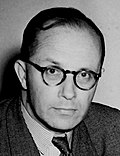
|
Teun Struycken (1906–1977) |
Interior, Property and Public Organisations |
29 October 1956 – 19 May 1959 [Continued] |
Catholic People's Party | |||
| Deputy Prime Minister | |||||||

|
Joseph Luns (1911–2002) |
Minister
|
Foreign Affairs | 13 October 1956 – 6 July 1971 [Continued] |
Catholic People's Party | ||
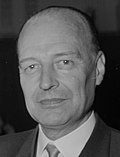
|
Henk Hofstra (1904–1999) |
Minister
|
Finance | 13 October 1956 – 22 December 1958 |
Labour Party | ||

|
Dr. Ivo Samkalden (1912–1995) |
Minister
|
Justice | 13 October 1956 – 22 December 1958 |
Labour Party | ||

|
Dr. Jelle Zijlstra (1918–2001) |
Minister
|
Economic Affairs
|
2 September 1952 – 19 May 1959 [Retained] [Continued] |
Anti- Revolutionary Party | ||

|
Kees Staf (1905–1973) |
Minister
|
War and Navy | 15 March 1951 – 19 May 1959 [Retained] [Continued] |
Christian Historical Union | ||

|
Ko Suurhoff (1905–1967) |
Minister
|
Social Affairs and Health |
2 September 1952 – 22 December 1958 [Retained] |
Labour Party | ||

|
Jo Cals (1914–1971) |
Minister
|
Education, Arts and Sciences |
2 September 1952 – 24 July 1963 [Retained] [Continued] |
Catholic People's Party | ||

|
Jacob Algera (1902–1966) |
Minister
|
Transport and Water Management |
2 September 1952 – 10 October 1958 [Retained] [App] |
Anti-Revolutionary Party | ||

|
Herman Witte (1909–1973) |
10 October 1958 – 1 November 1958 [Ad Interim] |
Catholic People's Party | ||||

|
Jan van Aartsen (1909–1992) |
1 November 1958 – 19 May 1959 [Continued] |
Anti-Revolutionary Party | ||||
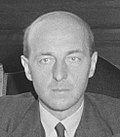
|
Sicco Mansholt (1908–1995) |
Minister
|
Agriculture,
Fisheries and Food Supplies |
25 June 1945 – 1 January 1958 [Retained] [App] |
Labour Party | ||

|
Kees Staf (1905–1973) |
1 January 1958 – 13 January 1958 [Ad Interim] |
Christian Historical Union | ||||

|
Dr. Anne Vondeling (1916–1979) |
13 January 1958 – 22 December 1958 |
Labour Party | ||||

|
Herman Witte (1909–1973) |
Minister
|
Housing and
Construction |
2 September 1952 – 19 May 1959 [Retained] [Continued] |
Catholic People's Party | ||

|
Dr. Marga Klompé (1912–1986) |
Minister
|
Social Work | 13 October 1956 – 24 July 1963 [Continued] |
Catholic People's Party | ||

|
Kees Staf (1905–1973) |
Minister
|
Colonial Affairs | 18 July 1956 – 16 February 1957 [Retained] [Acting] |
Christian Historical Union | ||

|
Gerard Helders (1905–2013) |
16 February 1957 – 19 May 1959 [Continued] |
Christian Historical Union | ||||
State Secretaries
|
Title/Ministry/Portfolio(s) | Term of office | Party | ||||

|
Norbert Schmelzer (1921–2008) |
State Secretary
|
Interior, Property and Public Organisations |
• Public Organisations |
29 October 1956 – 19 May 1959 [Continued] |
Catholic People's Party | |

|
Ernst van der Beugel (1918–2004) |
State Secretary
|
Foreign Affairs | • European Economic Community • European Union • Benelux |
8 January 1957 – 22 December 1958 |
Labour Party | |

|
Dr. Gerard Veldkamp (1921–1990) |
State Secretary
|
Economic Affairs
|
• | 10 October 1952 – 17 July 1961 [Retained] [Continued] |
Catholic People's Party | |

|
Ferdinand Kranenburg (1911–1994) |
State Secretary
|
War and Navy | • Air Force
|
1 June 1951 – 1 June 1958 [Retained] [Res] |
Labour Party | |

|
Meine van Veen (1893–1970) |
25 October 1958 – 22 December 1958 |
Labour Party | ||||
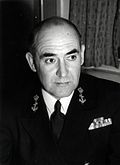
|
Vice admiral Harry Moorman (1899–1971) |
• Navy | 1 May 1949 – 19 May 1959 [Retained] [Continued] |
Catholic People's Party | |||

|
Dr. Aat van Rhijn (1892–1986) |
State Secretary
|
Social Affairs and Health |
• Social Security • Unemployment • Occupational Safety • Social Services |
15 February 1950 – 22 December 1958 [Retained] |
Labour Party | |

|
Dr. Anna de Waal (1906–1981) |
State Secretary
|
Education, Arts and Sciences |
• Primary Education • Secondary Education • Special Education • Youth Care |
2 February 1953 – 16 March 1957 [Retained] [Res]} |
Catholic People's Party | |
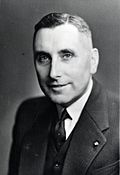
|
René Höppener (1903–1983) |
• Youth Care • Nature • Media • Culture • Art • Recreation • Sport |
12 November 1956 – 19 May 1959 [Continued] |
Catholic People's Party | |||
- Resigned
- Retained from the previous cabinet
- Continued in the next cabinet
- Acting
- Ad Interim
- Appointed as Member of the Council of State
- Appointed as European Commissioner
Trivia
- Eight cabinet members had previous experience as scholars and professors: Henk Hofstra (Fiscal Law), Ivo Samkalden (Agricultural Law), Jelle Zijlstra (Public Economics), Anne Vondeling (Agronomy and Agricultural Engineering), Marga Klompé (Chemistry), Gerard Veldkamp (Microeconomics), Aat van Rhijn (Fiscal Law) and Anna de Waal (Geography).
- Five cabinet members would later be granted the honorary title of Minister of State: Willem Drees (1958), Ivo Samkalden (1985), Jelle Zijlstra (1983), Jo Cals (1966) and Marga Klompé (1971).
- Four cabinet members (later) served as Party Leaders and Lijsttrekkers: Willem Drees (1946–1946) of the Social Democratic Workers' Party and (1946–1958) of the Labour Party, Anne Vondeling (1962–1966) of the Labour Party, Jelle Zijlstra (1956, 1958–1959) of the Anti-Revolutionary Party and Norbert Schmelzer(1963–1971) of the Catholic People's Party.
- Two cabinet members lived to centenarian age: Willem Drees (1886–1988) lived to 101 years, 314 days and Gerard Helders (1905–2013) lived to 107 years, 303 days.
References
- ^ Changing Liaisons The Dynamics of Social Partnership in 20th Century West-European DemocraciesBy Karel Davids, 2007, P.165
- ^ According to a different numbering this was the Fourth Drees cabinet because it was the fourth cabinet with Willem Drees as Prime Minister.
- ^ Changing Liaisons The Dynamics of Social Partnership in 20th Century West-European DemocraciesBy Karel Davids, 2007, P.165
- ^ "Coalities tussen sociaaldemocraten en confessionelen" (in Dutch). Historisch Nieuwsblad. 10 August 2006. Retrieved 24 April 2018.
External links
- Official
- (in Dutch) Kabinet-Drees IV Parlement & Politiek
- (in Dutch) Kabinet-Drees III Rijksoverheid